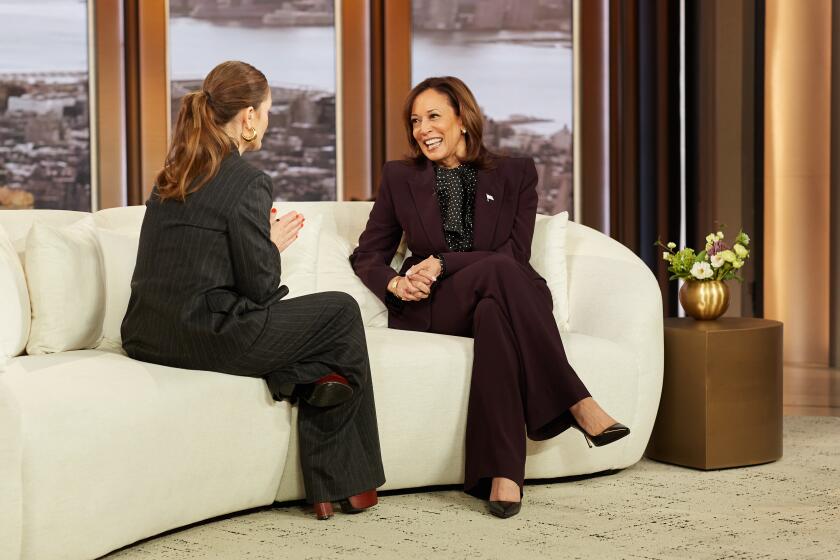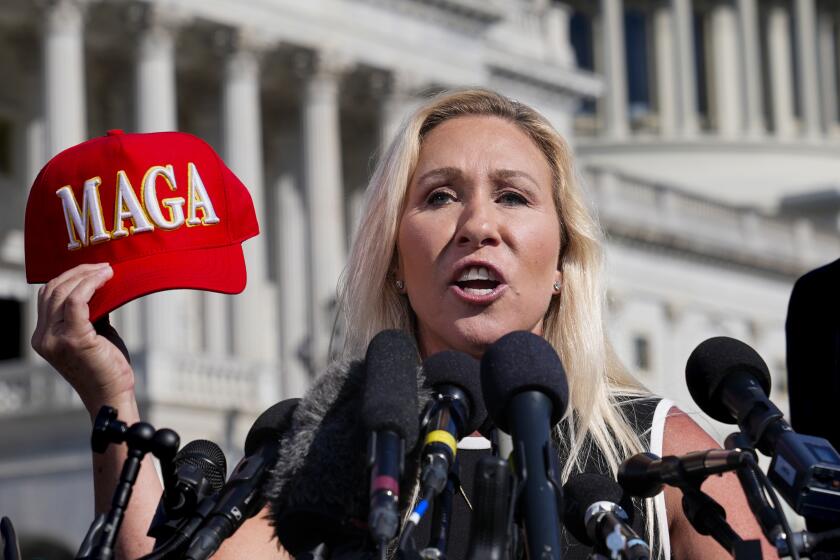In N.H. primary, ‘tea party’ zeal meets Yankee reserve
The primary season in effect draws to a close Tuesday as seven states and the District of Columbia hold elections, with most of the competitive statewide races involving Republicans.
The Republican Senate primary in New Hampshire will offer an intriguing test of how the state’s traditional Yankee Republicanism reconciles with the “tea party” energy that has enveloped party contests around the country this year.
The front-runner is former state Atty. Gen. Kelly Ayotte, the choice both of the National Republican Senatorial Committee in Washington and of former Alaska Gov. Sarah Palin, who named Ayotte to her list of “mama grizzlies” in July.
But polling shows a fluid race. Businessmen Jim Bender and Bill Binnie both used personal funds to wage aggressive television ad campaigns.
More recently, conservative attorney Ovide Lamontagne has begun surging, buoyed by the endorsement of the editorial page of the influential New Hampshire Union Leader and many fiscally conservative tea party members. “If there’s a buzz candidate, it’s him,” said Tom Rath, a Concord lawyer and former state attorney general who is neutral in the race. “Of all the candidates, his core support is the most motivated.”
Polls show that whoever emerges as the Republican nominee is well positioned against Rep. Paul W. Hodes, who faces no opposition in the Democratic primary.
In Delaware’s Republican race for the Senate, Rep. Michael N. Castle is trying to withstand an unexpectedly fierce challenge from perennial candidate Christine O’Donnell, whom Palin has endorsed.
Palin has also backed an underdog, investment banker Brian Murphy, in the Republican race for Maryland governor. Former Gov. Robert L. Ehrlich Jr. is considered likely to prevail, however, as he seeks to avenge his 2006 defeat by current Democratic Gov. Martin O’Malley, the former mayor of Baltimore.
Voters in New York, Wisconsin, Massachusetts and Rhode Island also will cast ballots Tuesday. Hawaiians go to the polls next Saturday in what will be the final primary in the nation this year, more than seven months after the first ballots were cast in Illinois.
The focus then will turn to a 45-day general election campaign with majorities in the House and Senate at stake, along with control of dozens of statehouses.
michael.memoli@latimes.com
More to Read
Get the L.A. Times Politics newsletter
Deeply reported insights into legislation, politics and policy from Sacramento, Washington and beyond. In your inbox three times per week.
You may occasionally receive promotional content from the Los Angeles Times.







